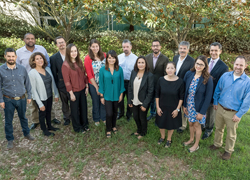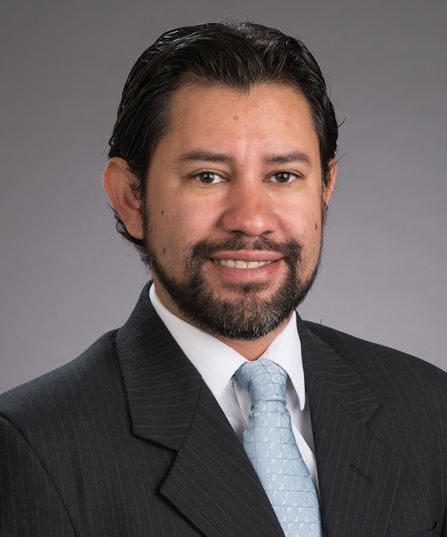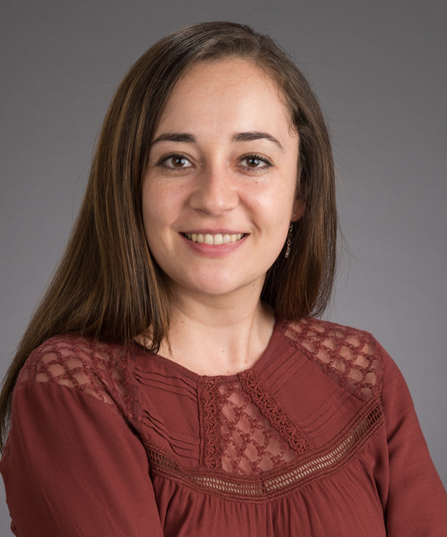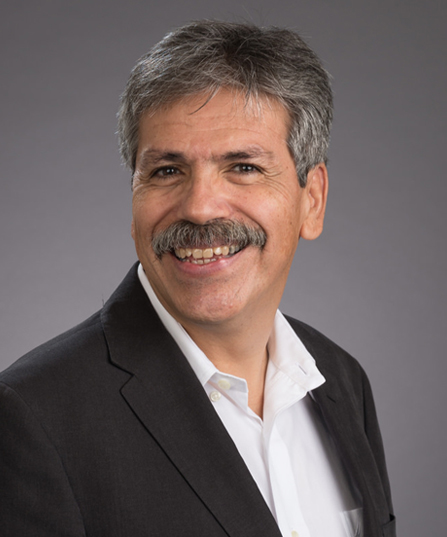Fellows find research rebooted
Three USMEX Fellows detail how their fellowships have helped take their respective research projects to the next level
Dec. 9, 2015 | By Sarah Pfledderer | GPS News
The Center for U.S.-Mexican Studies (USMEX) at the UC San Diego School of Global Policy and Strategy (GPS) boasts one of the largest residential fellowship programs in the U.S. for research on Mexico and U.S.-Mexico relations. T he USMEX Fellows program has received more than 650 scholars from the social sciences, humanities and related fields to form a multidisciplinary cohort of researchers, 20 of whom comprise the 2015-16 cohort.
he USMEX Fellows program has received more than 650 scholars from the social sciences, humanities and related fields to form a multidisciplinary cohort of researchers, 20 of whom comprise the 2015-16 cohort.
Here, we asked three current fellows to put in black and white how their residency has helped them round out their research projects.
Police and public health
“I look at substance abuse as a health problem rather than a criminal one. My research analyzes how drug policy reform and policing practices can affect HIV-risk behavior among people who inject drugs, as well as the occupational safety of police officers in Tijuana, Mexico.
 My interdisciplinary background and prior work for the government in Mexico enabled me to collaborate with the global health faculty at UC San Diego on the development and implementation of an occupational safety and HIV police education program in Tijuana. Named Project ESCUDO, this marks the first time a U.S. public university signed an agreement with a police force in Mexico to promote academic research and police training. The way the Center understands the importance of studying U.S.-Mexico issues as a common set of problems that require a dialogue on both side of the border is priceless. The idea is to modify the direct and indirect effects of law enforcement on HIV risks by promoting better policing practices that discourage syringe confiscation and drug-user victimization. The work with police has allowed us to present at local and international conferences, as well as to develop multimedia that can inform policymakers about ways to implement harm-reduction strategies.
My interdisciplinary background and prior work for the government in Mexico enabled me to collaborate with the global health faculty at UC San Diego on the development and implementation of an occupational safety and HIV police education program in Tijuana. Named Project ESCUDO, this marks the first time a U.S. public university signed an agreement with a police force in Mexico to promote academic research and police training. The way the Center understands the importance of studying U.S.-Mexico issues as a common set of problems that require a dialogue on both side of the border is priceless. The idea is to modify the direct and indirect effects of law enforcement on HIV risks by promoting better policing practices that discourage syringe confiscation and drug-user victimization. The work with police has allowed us to present at local and international conferences, as well as to develop multimedia that can inform policymakers about ways to implement harm-reduction strategies.
The USMEX Fellowship has given me the opportunity to focus entirely on the analysis and dissemination of results, helping me adapt and implement evidence-based interventions to modify the effect of policing practices and of the judicial system as a major driver of mass incarceration of illicit drug users and the spread of blood borne infections, particularly in the U.S.–Mexico border region.”—Jaime Arredondo, Ph.D. candidate in global public health, UC San Diego
The role of state capacity in mitigating organized crime in Mexico
 “My project looks at how the strength of local governments has an impact on lowering the levels of organized crime related violence in Mexico. I became interested in this when I observed in some parts of Mexico the military has successfully reduced the number of drug-related homicides. Some recent scholars have found the contrary: The military presence spurs violence. I started to question, ‘Under what circumstances state capacity—in military and bureaucratic terms—can indeed be a successful strategy?’ I have found the reduction of violence depends on the agency that is in charge of coordinating the operation such as army, federal police or navy; the relationship this agency establishes with the local police; and the configuration of the illegal drug market.
“My project looks at how the strength of local governments has an impact on lowering the levels of organized crime related violence in Mexico. I became interested in this when I observed in some parts of Mexico the military has successfully reduced the number of drug-related homicides. Some recent scholars have found the contrary: The military presence spurs violence. I started to question, ‘Under what circumstances state capacity—in military and bureaucratic terms—can indeed be a successful strategy?’ I have found the reduction of violence depends on the agency that is in charge of coordinating the operation such as army, federal police or navy; the relationship this agency establishes with the local police; and the configuration of the illegal drug market.
For researchers it is always important to have different sources to compare and replicate results. In this sense, it has been a challenge to gather the data since it takes considerable time and effort. Since organized crime is a transnational phenomenon in which cooperation of both countries is essential, I thought the USMEX Fellowship would give a unique viewpoint to my work. USMEX has helped me deepen my analysis through conversations among fellows and professors at GPS. I have realized, regardless of the discipline, as a scholar you have to be able to convey in a clear manner your research and results.
The multidisciplinary background of the fellows is one of the best aspects of the program. I have learned new topics about Mexico and the U.S.-Mexico relationship through my fellows from other disciplines such as history, anthropology public health and economics. This has allowed to me to discover new perspectives about how complex and dynamic the relationship is between our two countries. I believe research needs to impact public policy. That is why I would like to develop my career at an international organization or a governmental agency that focuses on implementing programs that increase the cooperation between Mexico and the U.S.”—Rocío Rivera Barradas, Ph.D. candidate in international studies, University of Miami
An environmental history of Mexico
“The goal of this project is to synthesize the environmental history of Mexico since 1780 until 1940 by examining problems regarding land, work and capital. However, these typical problems will be confronted with others such as water, forest, property’s rights, technological change, etc. For example, above all in the arid North, it was thought a need to extend irrigation by constructing expensive systems of water storing and distribution. Now, it is known these policies create social conflicts and ecological damages in the watershed. For this reason, they must be analyzed very carefully.
 To study these aspects, surrounding geography and ecology, will be one of the central goals of this research. Leadership in environmental history in the U.S. and UC San Diego’s leading researchers on environmental issues in Latin America— Christine Hunefeldt, Eric Van Young and Matthew Vitz—led me to explore this project in San Diego. It is important to create an intellectual network to improve our knowledge. Finally, the UC San Diego library, with its special collections that are rich in archival materials about Mexican natural resources is attractive. It is difficult to find archival material and good methods to study environmental transformations.
To study these aspects, surrounding geography and ecology, will be one of the central goals of this research. Leadership in environmental history in the U.S. and UC San Diego’s leading researchers on environmental issues in Latin America— Christine Hunefeldt, Eric Van Young and Matthew Vitz—led me to explore this project in San Diego. It is important to create an intellectual network to improve our knowledge. Finally, the UC San Diego library, with its special collections that are rich in archival materials about Mexican natural resources is attractive. It is difficult to find archival material and good methods to study environmental transformations.
The USMEX Fellows program has given me all kinds of support: the possibility of organizing an international seminar at UC San Diego, support for participation in international symposiums and a daily exchange of research experiences with other fellows. For instance, we have dinner every Tuesday and exchange experiences in research. I learned the location of some important archives that exist at UC Riverside or UC Berkeley from other fellows.”—Alejandro Tortolero Villaseñor, professor of history, Universidad Autónoma Metropolitana-Iztapalapa
The responses included here have been shortened and edited lightly for clarity
